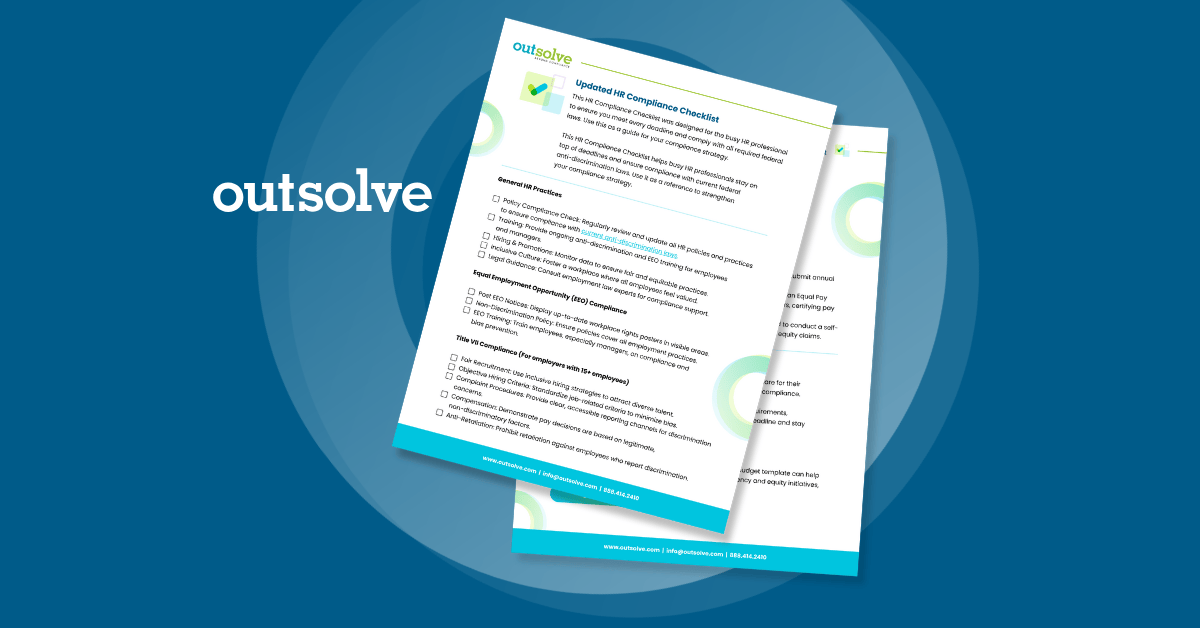 How to Achieve Compliance in HR: What You Need to Know
State pay reporting. Anti-discrimination. Workplace Safety. AI in Hiring.
Charlotte Mendoza, SHRM-CP
Apr 7, 2025 11:56:27 AM
How to Achieve Compliance in HR: What You Need to Know
State pay reporting. Anti-discrimination. Workplace Safety. AI in Hiring.
Charlotte Mendoza, SHRM-CP
Apr 7, 2025 11:56:27 AM
State pay reporting. Anti-discrimination. Workplace Safety. AI in Hiring.
Charlotte Mendoza, SHRM-CP How to Achieve Compliance in HR: What You Need to Know Employer Responsibility: Workplace Non-Discrimination Under Federal Law
The world of employment law continues to change. For HR, staying informed about employment law changes and their implications is crucial. One of the...
Annette Alvarado, SHRM-CP
Apr 1, 2025 9:27:34 AM
Employer Responsibility: Workplace Non-Discrimination Under Federal Law
The world of employment law continues to change. For HR, staying informed about employment law changes and their implications is crucial. One of the...
Annette Alvarado, SHRM-CP
Apr 1, 2025 9:27:34 AM
The world of employment law continues to change. For HR, staying informed about employment law changes and their implications is crucial. One of the most significant changes has been the rescission of Executive Order 11246, which impacts non-discrimination policies for federal contractors and government-related employers.
Annette Alvarado, SHRM-CP Employer Responsibility: Workplace Non-Discrimination Under Federal Law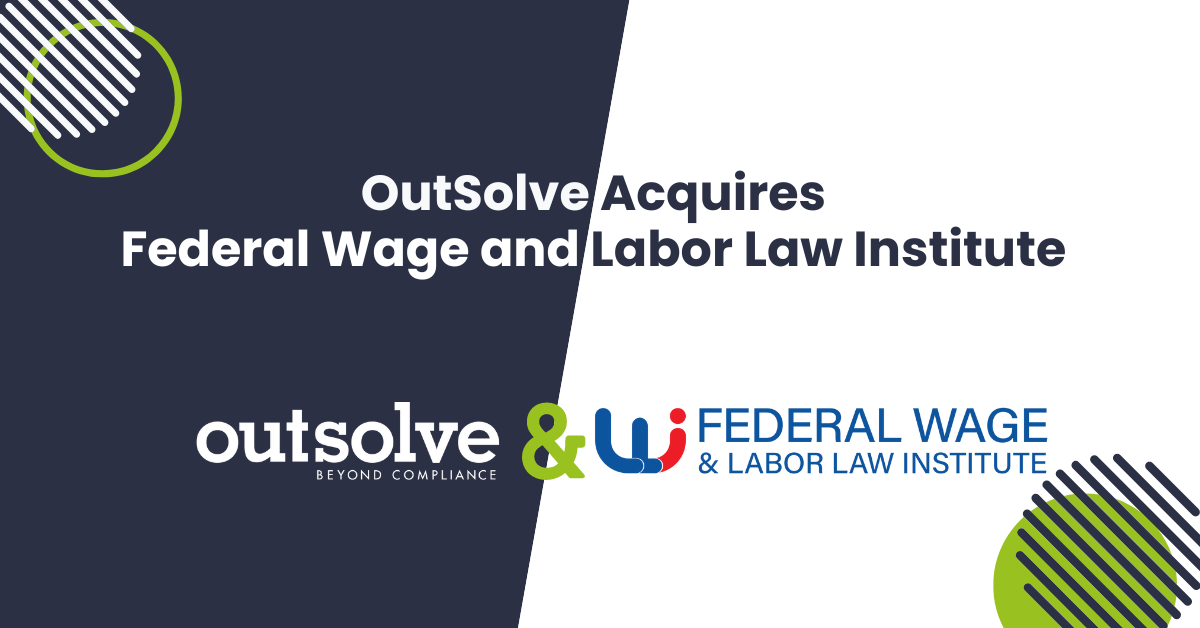 OutSolve Announces the Acquisition of Federal Wage and Labor Law Institute
OutSolve, a leading provider of employment solutions announces today its acquisition of Houston-based Federal Wage and Labor Law Institute (FWLLI), a...
Carla Pittman
Mar 26, 2024 10:15:00 AM
OutSolve Announces the Acquisition of Federal Wage and Labor Law Institute
OutSolve, a leading provider of employment solutions announces today its acquisition of Houston-based Federal Wage and Labor Law Institute (FWLLI), a...
Carla Pittman
Mar 26, 2024 10:15:00 AM
OutSolve, a leading provider of employment solutions announces today its acquisition of Houston-based Federal Wage and Labor Law Institute (FWLLI), a labor law compliance company that makes it easy for businesses to manage and comply with ever-changing labor law poster requirements.
Carla Pittman OutSolve Announces the Acquisition of Federal Wage and Labor Law Institute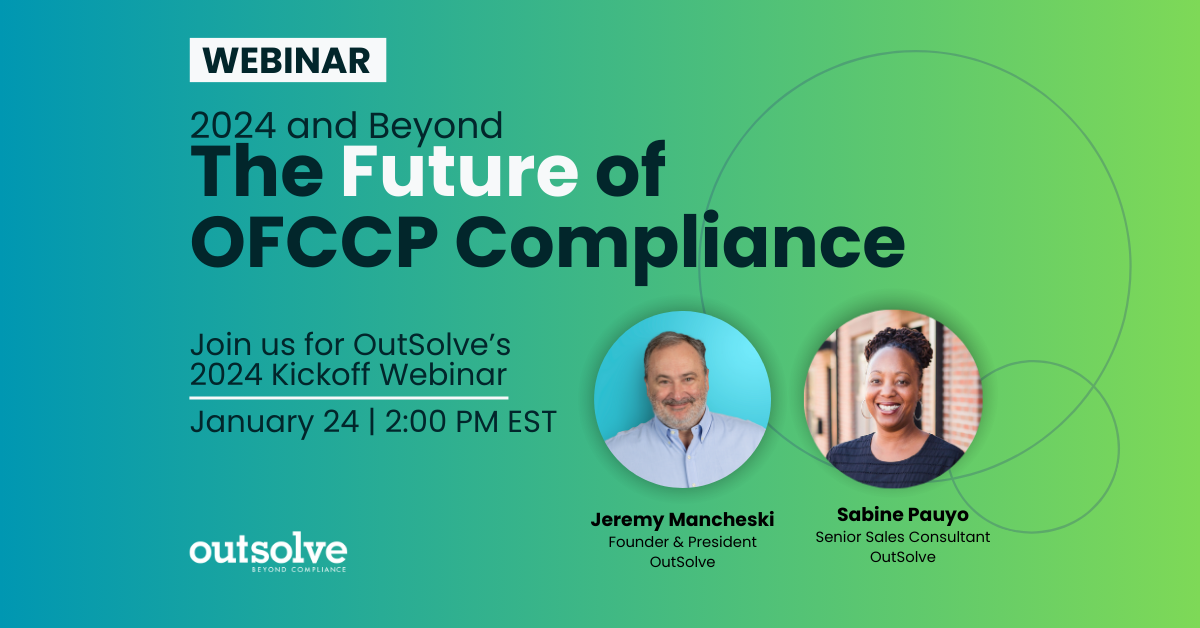 2024 and Beyond Webinar- The Future of OFCCP Compliance
Join OutSolve on Wednesday, January 24, to discuss what the future of OFCCP compliance will look like in 2024 and beyond. OutSolve CEO and Founder,...
Mary Madden
Jan 12, 2024 9:12:25 AM
2024 and Beyond Webinar- The Future of OFCCP Compliance
Join OutSolve on Wednesday, January 24, to discuss what the future of OFCCP compliance will look like in 2024 and beyond. OutSolve CEO and Founder,...
Mary Madden
Jan 12, 2024 9:12:25 AM
Join OutSolve on Wednesday, January 24, to discuss what the future of OFCCP compliance will look like in 2024 and beyond. OutSolve CEO and Founder, Jeremy Mancheski, and Sabine Pauyo, Sr. Sales Consultant, will provide valuable insights into pivotal shifts in federal compliance which you need to know. Register now for this webinar to be part of the conversation.
Mary Madden 2024 and Beyond Webinar- The Future of OFCCP Compliance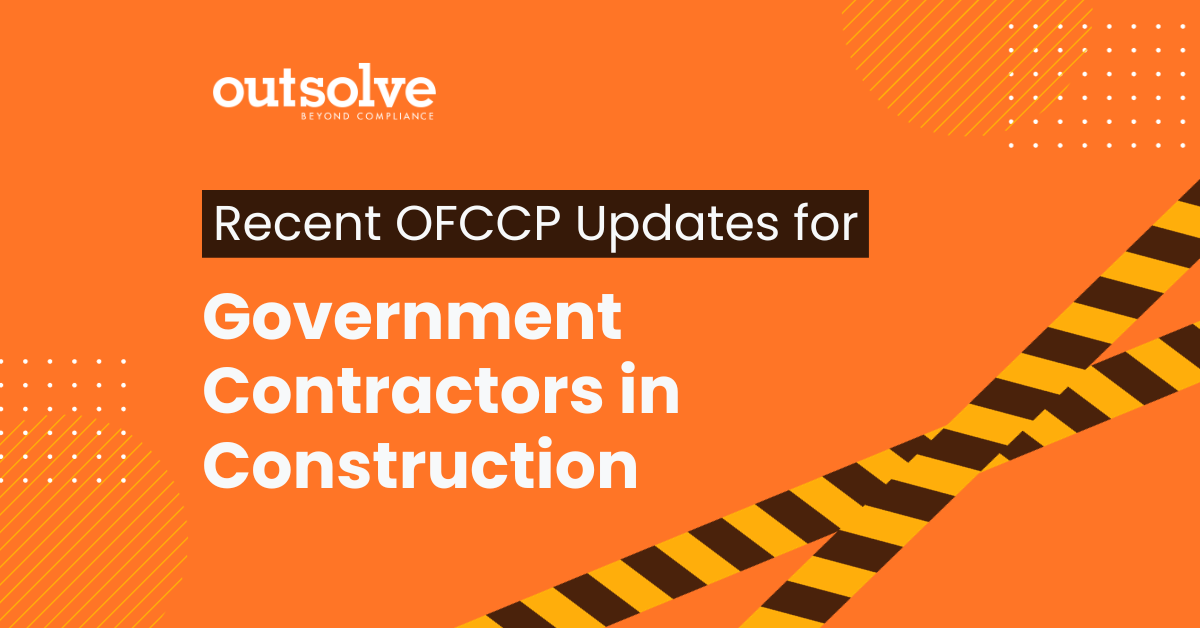 Understanding Recent OFCCP Updates for Government Contractors in Construction
The Office of Federal Contract Compliance Programs (OFCCP) has recently made significant updates to its Frequently Asked Questions (FAQs) sections,...
Debra Milstein Gardner
Jan 11, 2024 2:39:36 PM
Understanding Recent OFCCP Updates for Government Contractors in Construction
The Office of Federal Contract Compliance Programs (OFCCP) has recently made significant updates to its Frequently Asked Questions (FAQs) sections,...
Debra Milstein Gardner
Jan 11, 2024 2:39:36 PM
The Office of Federal Contract Compliance Programs (OFCCP) has recently made significant updates to its Frequently Asked Questions (FAQs) sections, particularly concerning federal contractors engaged in construction projects. These updates clarify compliance obligations when one contract covers both Construction and Supply and Service work.
Debra Milstein Gardner Understanding Recent OFCCP Updates for Government Contractors in Construction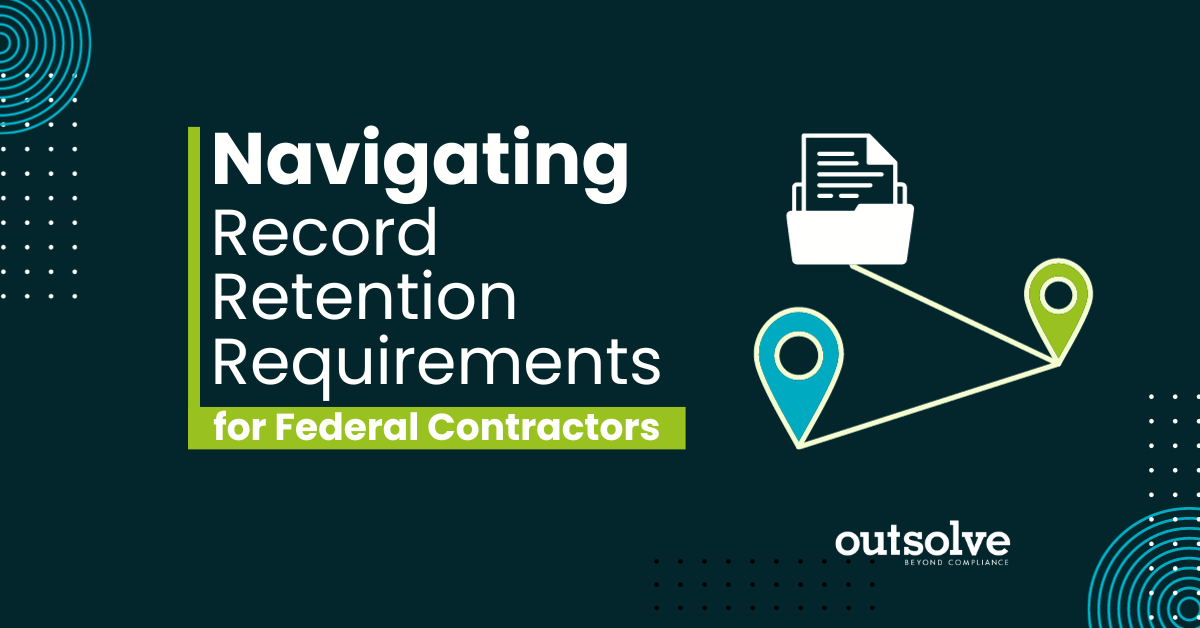 Navigating Record Retention Requirements for Federal Contractors
In the realm of federal contracting, adherence to affirmative action regulations is not just about implementing policies but also about meticulous...
Debra Milstein Gardner
Jan 3, 2024 12:54:20 PM
Navigating Record Retention Requirements for Federal Contractors
In the realm of federal contracting, adherence to affirmative action regulations is not just about implementing policies but also about meticulous...
Debra Milstein Gardner
Jan 3, 2024 12:54:20 PM
In the realm of federal contracting, adherence to affirmative action regulations is not just about implementing policies but also about meticulous record-keeping. The Office of Federal Contract Compliance Programs (OFCCP) mandates that federal contractors and subcontractors maintain comprehensive employment and personnel records. This requirement is a cornerstone of compliance reviews and is crucial in demonstrating adherence to affirmative action laws.
Debra Milstein Gardner Navigating Record Retention Requirements for Federal Contractors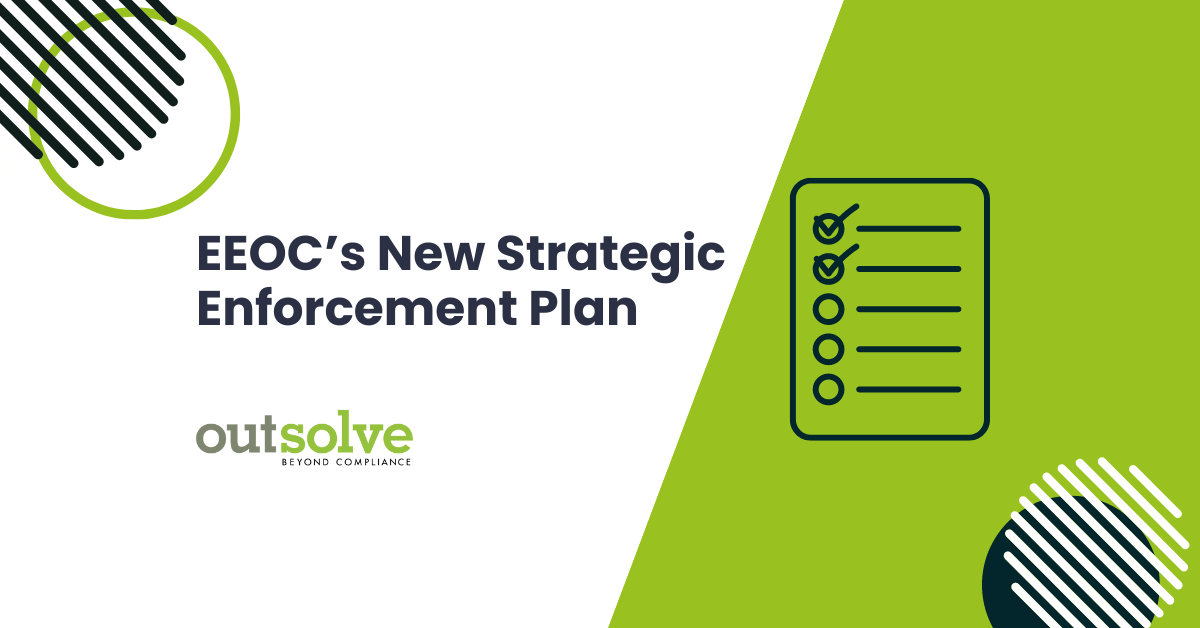 EEOC’s New Strategic Enforcement Plan
OutSolve’s EEO colleague, Toni Ahl, is an occasional contributor to our blog. The views, thoughts, and opinions expressed in this article belong...
Toni Ahl
Sep 6, 2023 10:39:53 AM
EEOC’s New Strategic Enforcement Plan
OutSolve’s EEO colleague, Toni Ahl, is an occasional contributor to our blog. The views, thoughts, and opinions expressed in this article belong...
Toni Ahl
Sep 6, 2023 10:39:53 AM
OutSolve’s EEO colleague, Toni Ahl, is an occasional contributor to our blog. The views, thoughts, and opinions expressed in this article belong solely to Toni and do not necessarily reflect the viewpoint of OutSolve or its employees.
Toni Ahl EEOC’s New Strategic Enforcement Plan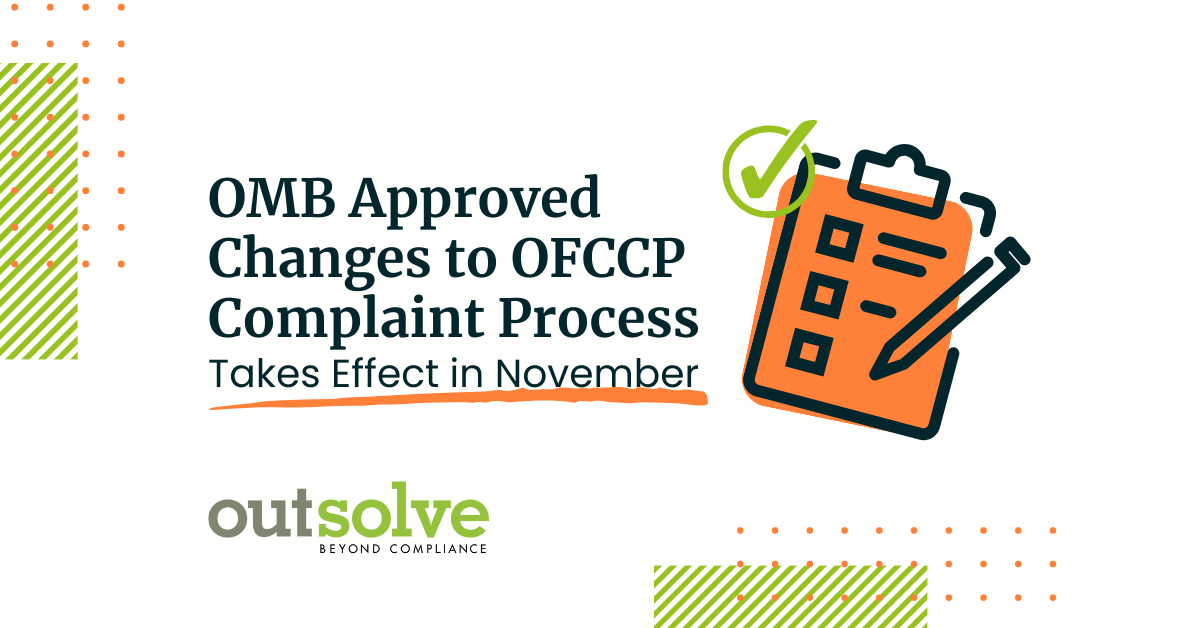 OMB Approved Changes to OFCCP Complaint Process Takes Effect in November
The Office of Management and Budget (OMB) approved OFCCP’s changes to the complaint intake procedures to simulate the Equal Employment Opportunity...
Debra Milstein Gardner
Aug 10, 2023 3:39:39 PM
OMB Approved Changes to OFCCP Complaint Process Takes Effect in November
The Office of Management and Budget (OMB) approved OFCCP’s changes to the complaint intake procedures to simulate the Equal Employment Opportunity...
Debra Milstein Gardner
Aug 10, 2023 3:39:39 PM
The Office of Management and Budget (OMB) approved OFCCP’s changes to the complaint intake procedures to simulate the Equal Employment Opportunity Commission’s (EEOC) two-step complaint process on June 30, 2023. The OFCCP will update systems by October 31, 2023 to accept complaints in additional languages to accommodate a diverse range of individuals.
Debra Milstein Gardner OMB Approved Changes to OFCCP Complaint Process Takes Effect in November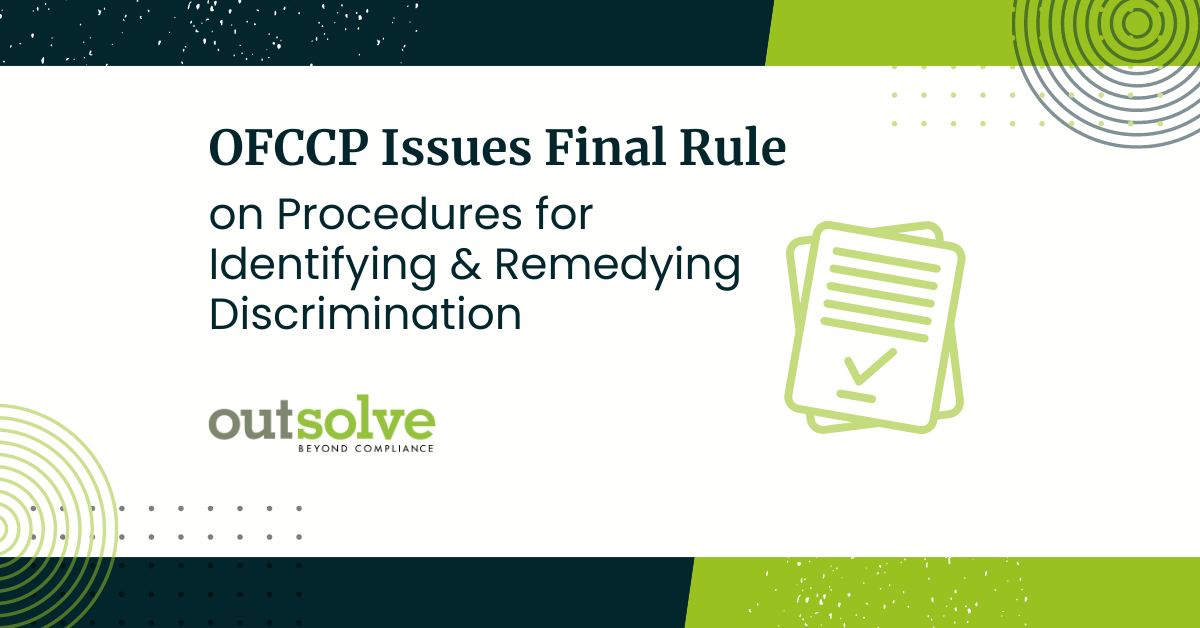 OFCCP Issues Final Rule on Procedures for Identifying and Remedying Discrimination
The Department of Labor has recently unveiled a final rule, titled "Pre-enforcement Notice and Conciliation Procedures," which aims to modify the...
Debra Milstein Gardner
Aug 7, 2023 4:43:42 PM
OFCCP Issues Final Rule on Procedures for Identifying and Remedying Discrimination
The Department of Labor has recently unveiled a final rule, titled "Pre-enforcement Notice and Conciliation Procedures," which aims to modify the...
Debra Milstein Gardner
Aug 7, 2023 4:43:42 PM
The Department of Labor has recently unveiled a final rule, titled "Pre-enforcement Notice and Conciliation Procedures," which aims to modify the existing rule by the Office of Federal Contract Compliance Program (OFCCP) called "Nondiscrimination Obligations of Federal Contractors and Subcontractors: Procedures to Resolve Potential Employment Discrimination" which took effect December 10, 2020. Additionally, the agency has developed a crosswalk to compare the 2020 rule with the anticipated 2023 rule. The 2023 final rule has been specifically designed to provide the OFCCP with a more streamlined, efficient, and flexible process in order to effectively investigate cases of discrimination.
One significant change brought about by this rule is the removal of the previous definitions of "qualitative and quantitative evidence." This allows the OFCCP to pursue cases that hold potential merit. Furthermore, it enables the agency to share discrimination-related findings with contractors during various stages of the compliance evaluation process, giving them an opportunity to respond.
Here are the key changes introduced by this new rule:
1. It provides clarification on the "reasonable efforts" standard that the OFCCP must adhere to when attempting to achieve compliance through conciliation.
2. It establishes the requirement to use the Pre-determination Notice (PDN) in cases where preliminary findings of potential discrimination are identified.
3. It eliminates the need for the OFCCP Director or acting agency head to approve the PDN prior to its issuance. However, the current procedure of the OFCCP necessitates a review by the national office.
4. It reinstates the 15-calendar day response period for the PDN, with the possibility of extensions for valid reasons.
5. It retains the option of expedited conciliation.
6. It permits the OFCCP to identify additional violations through subsequent Notice of Violations (NOV) or Show Cause Notices without requiring amendments to the PDN or original NOV.
7. It establishes that the OFCCP can issue Show Cause Notices without initially providing a PDN or NOV in cases where the contractor has denied access to premises, records, witnesses, or other relevant information.
These changes are aimed at enhancing the effectiveness and efficiency of the OFCCP's efforts in combating employment discrimination.
The OFCCP issued a press release on the rule.
Staying informed of OFCCP's changes to the process for investigating discrimination is crucial for all federal contractors. The changes noted above will impact the way the OFCCP will conduct compliance evaluations and communicate findings. OutSolve stands ready to assist in these reviews. For further information on how OutSolve can help you stay compliant and reduce risks, please contact us.
Debra Milstein Gardner OFCCP Issues Final Rule on Procedures for Identifying and Remedying Discrimination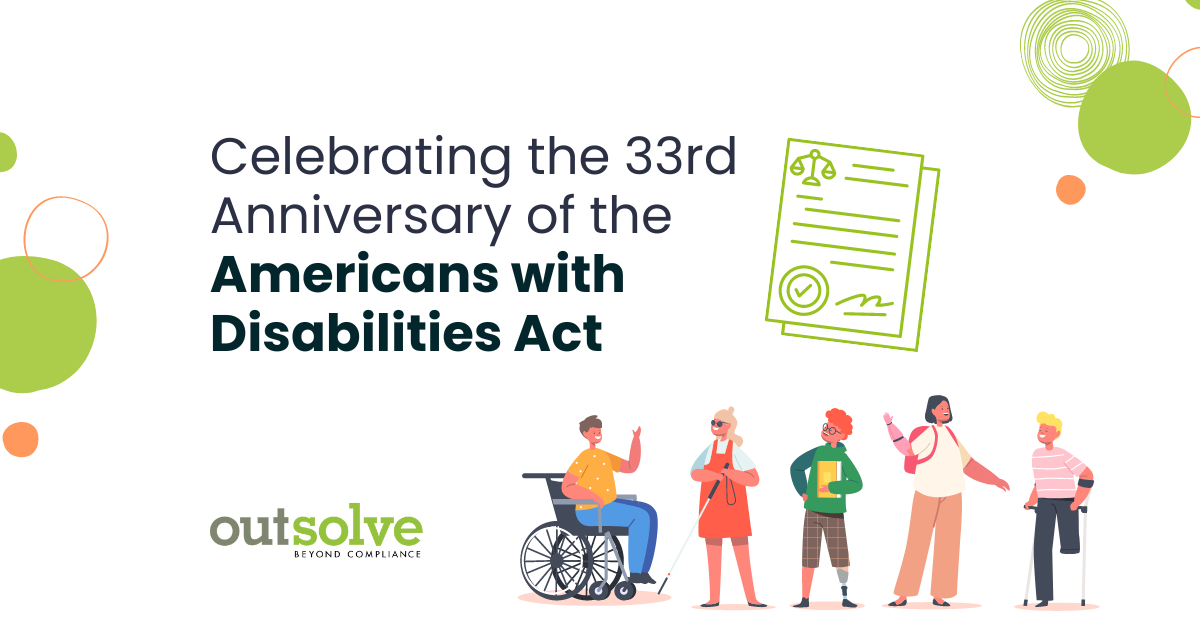 Celebrating the 33rd Anniversary of the Americans with Disabilities Act
The mission of the ADA and Section 503 is to help employers build more equitable, inclusive organizations that value the contributions of individuals...
Debra Milstein Gardner
Aug 2, 2023 9:59:24 AM
Celebrating the 33rd Anniversary of the Americans with Disabilities Act
The mission of the ADA and Section 503 is to help employers build more equitable, inclusive organizations that value the contributions of individuals...
Debra Milstein Gardner
Aug 2, 2023 9:59:24 AM
The mission of the ADA and Section 503 is to help employers build more equitable, inclusive organizations that value the contributions of individuals with disabilities.The Americans with Disabilities Act (ADA) was passed 33 years ago to protect individuals with disabilities against discrimination in their public life, including jobs, schools, transportation, and all public and private places. Government contractors are obligated to adhere to both the ADA and Section 503 of the Rehabilitation Act of 1973. Section 503 prohibits federal contractors from discriminating against individuals with disabilities and requires affirmative action programs to recruit, hire, promote and retain individuals covered by the act.
Debra Milstein Gardner Celebrating the 33rd Anniversary of the Americans with Disabilities Actcompany news

Mary MaddenApr 26, 2024
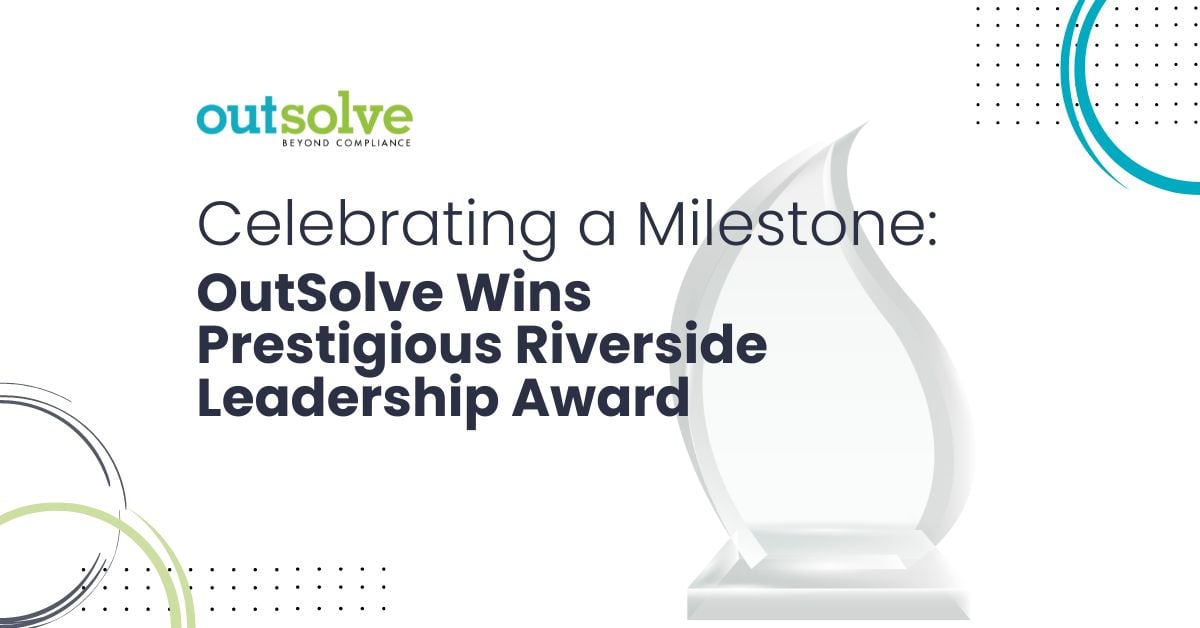
Mary MaddenApr 11, 2024
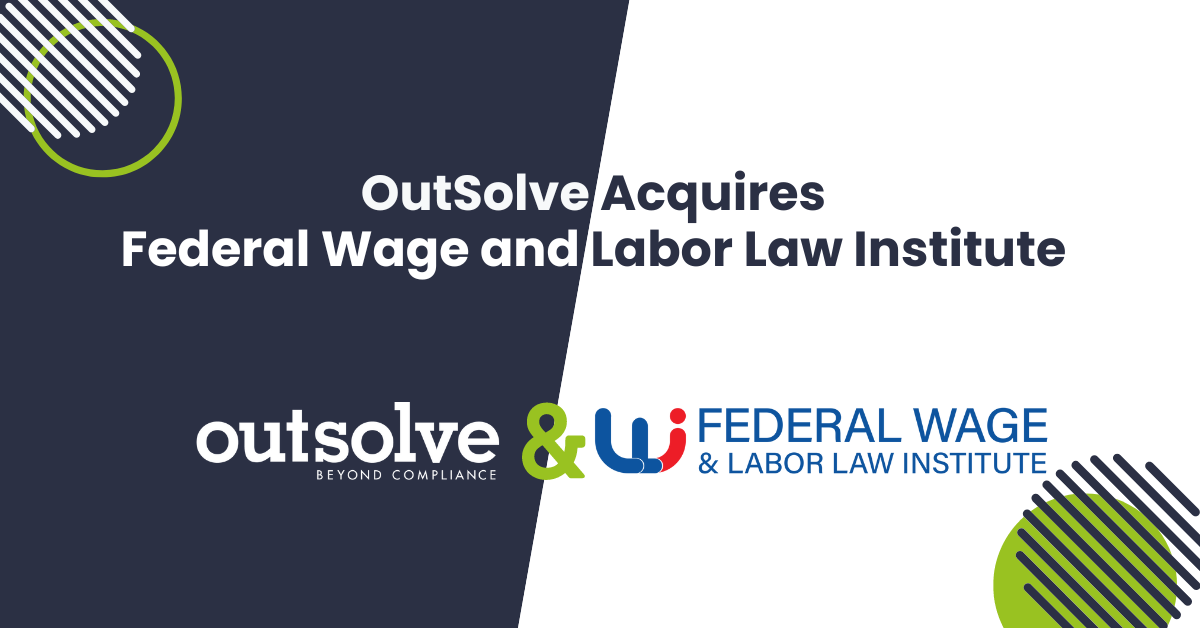
Carla PittmanMar 26, 2024
Need More Help? Contact OutSolve.
We offer HR compliance, anti-discrimination, and fair pay solutions.



